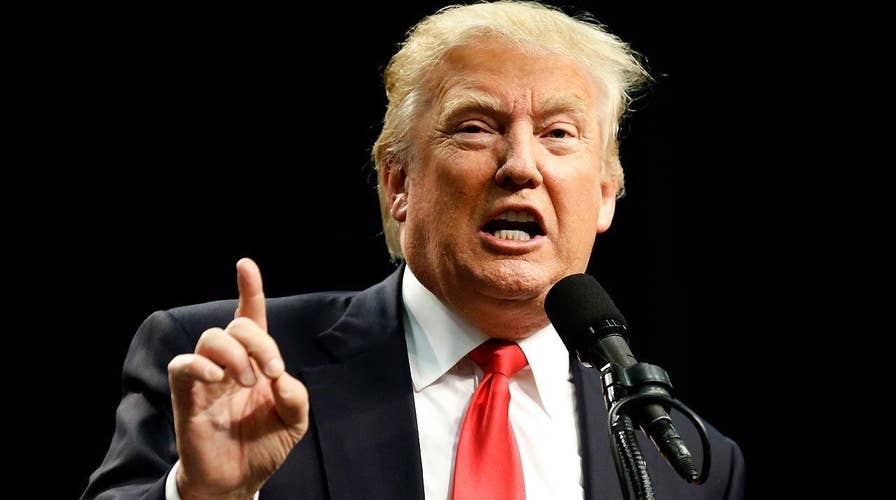Donald Trump: Use NATO to destroy ISIS; this is war
Presumptive GOP presidential nominee weighs in on 'The O'Reilly Factor' following the terror attack in Nice, France
One thing Donald Trump knows better than almost anyone is the art of making a deal and negotiating from a position of strength.
Trump is now applying that same savvy business-sense to America’s international role as the chief contributor, in terms of dollars and military support, to the North Atlantic Treaty Organization (NATO)—an alliance of countries from North America and Europe.
Trump has it right.
To the irritation of so-called national defense and security experts, Trump is doing what President Barack Obama should have done a long time ago: compel NATO countries to uphold their full commitment to the alliance and each other.
Trump is doing what President Barack Obama should have done a long time ago: compel NATO countries to uphold their full commitment to the alliance and each other.
The NATO alliance is important to preserving global security and mutual security interests, and that is something Trump no doubt fully grasps. NATO was initially purposed to counter the Soviet Union, but times have changed and while the threat of an emboldened Russia still persists, it’s the global terrorist threat that is taking center stage. Something countries like Belgium, France and Turkey know all too well.
As is always the case, NATO is a euphemism for American combat resources, troops and funding. The 28 countries that comprise NATO are all committed to common strategic goals and safeguarding freedom, but for too long these countries have relied on America’s military power and force projection without meeting their own obligations.
NATO imposes a goal on member nations that at least 2 percent of Gross Domestic Product (GDP) goes to support defense—a direct benefit the alliance. Only five of the 28 countries are meeting that obligation and the United States assumes the disproportionate share of the funding burden at 3.6 percent of GDP.
Critics and security experts argue that this is acceptable and that compelling greater cost sharing among NATO allies could serve to upend the international alliance and stir resentment that will translate into even less cooperation.
Trump isn’t buying it.
Many of the experts sounding the alarm are the same individuals—in and out of government—who supported the disbandment of the Iraqi military early in the invasion to ouster Saddam Hussein. They’re the same individuals who argued Iraq’s government could flourish under a democratic system and even supported the withdrawal of forces from Iraq without retaining a military presence, inviting the formation of the Islamic State. They’re the same individuals who felt the government of Afghanistan could flourish in its current form—as if Kabul could mirror any major American city.
How wrong they were.
Trump needs to stay the course on his criticism of NATO, not for the purpose of dissolving America’s role or reducing its influence, but rather to force greater participation, through funding and military support, from all partner nations that want to be part of the club. They all depend on America for protection and support, and that reliance is sure to continue, but its time they’re asked to start meeting their own obligations and better collaborate to protect their own borders and interests.
What Trump is doing is smart. He’s keeping cards close to his chest and in the process he’s utilizing America’s position of strength, and unofficial ownership of NATO, to send a clear signal to the world that America will expect its allies to do more. In many ways, it’s the start of a negotiation that the next President—even if not Trump himself—must continue.
Whenever Trump questions NATO, the gasps among the national security establishment should be treated as nothing more than an interest to preserve the status quo. They argue it’s been this way for a long time, so there’s no reason to make waves, even if America shoulders a disproportionate burden under the NATO banner.
Instead, Trump is creating a real opportunity for our international partners to show their strength to the rest of the world, particularly at a time when America’s attention is scattered across the globe—from Afghanistan to Iraq to Syria to Africa and elsewhere.
It’s a clear indication that he’ll be a strong commander in chief.









































